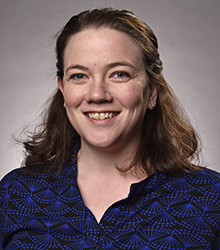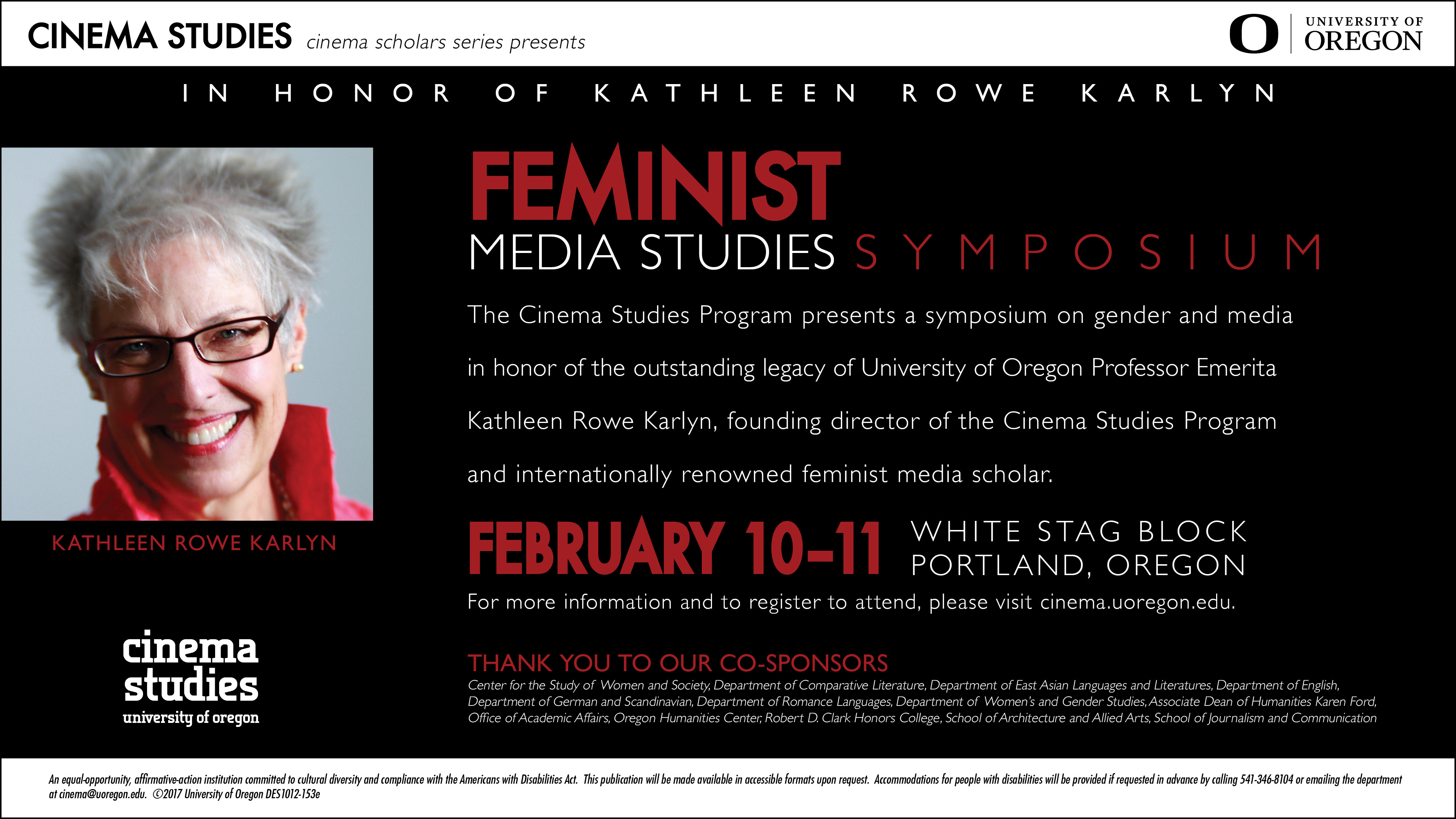 Ellen Gillooly-Kress is a first-year PhD student in Theatre Arts, in her third year here at the University of Oregon after receiving her MA in Linguistics in 2016. Her research has focused on “the intersection of cognitive processing of language in performance, specifically with actors and memorized lines. My focus was on cospeech gesture—what the actors were doing with their hands while speaking—and how it manifests when actors are trying to recall memorized speech. I’m fascinated by how our spontaneous behaviors we do when we are speaking every day manifest in certain kinds of “realistic” performance that is taught as part of the American theatrical tradition. I’m interested in using empirical data to reinforce the pedagogical discoveries made in the creative classroom.”
Ellen Gillooly-Kress is a first-year PhD student in Theatre Arts, in her third year here at the University of Oregon after receiving her MA in Linguistics in 2016. Her research has focused on “the intersection of cognitive processing of language in performance, specifically with actors and memorized lines. My focus was on cospeech gesture—what the actors were doing with their hands while speaking—and how it manifests when actors are trying to recall memorized speech. I’m fascinated by how our spontaneous behaviors we do when we are speaking every day manifest in certain kinds of “realistic” performance that is taught as part of the American theatrical tradition. I’m interested in using empirical data to reinforce the pedagogical discoveries made in the creative classroom.”
What drew her to the New Media and Cultural Certificate is her research interest in “the performance of theater in a society that is now heavily digital.”
In Algorithms and Automations with Prof. Seth J. Lewis in Winter 2017, Ellen was introduced to “the idea of algorithms as socially constructed artifacts. This in many ways is a direct reflection of how theatrical production can be, namely an ethereal object that many people must collaborate on and shape. These ethereal objects have a symbiotic relationship with their creators; both object and creator are constantly interfacing and changing one another. I credit Prof. Lewis with introducing me to the philosophies of Bruno Latour and the social construction theories of algorithms by Tarleton Gillespie.
I plan on using the knowledge from this class and others in the program to look at digital spaces as a kind of performance spaces for groups of individuals. I also enjoy bursting the perceived dichotomy between practices in theatre and practices in digital space.
Some of my favorite theatre companies have experimented with using digital space in their performances. For instance, Ferry Play by This Is Not A Theatre Company invited individuals to download a “podplay” to be listened to on the Staten Island Ferry. Collectively listening on individual devices while sharing a physical space engages the personal vs. public question of performance in a very dynamic way that is interesting to me not only as a researcher but as an artist myself.”
Ellen’s new media related recommendations:
- http://lingthusiasm.com (podcast, blog): For those with a love of language and who want an introduction to linguistics
- http://howlround.com (blog, theatre commons): A news source for theatre people, written by theatre people. Also features simulcasts of performances, along with weekly twitter chats and other wonderful partnerships.
Favorite performance pieces:
- Wafaa Bilal’s Domestic Tension: http://www.ibraaz.org/publications/55
- LABEOUF, RÖNKKÖ & TURNER: #HEWILLNOTDIVIDE.US http://labeoufronkkoturner.com/projects/hewillnotdivideus/
- punchdrunk theatre company: an immersive theatre company https://www.punchdrunk.org.uk/
- SLEEP NO MORE: https://mckittrickhotel.com/sleep-no-more/
- Playwright Charles Mee, who has published his entire body of plays: http://www.charlesmee.org/plays.shtml

 “I am a second-year PhD student in the
“I am a second-year PhD student in the 
 Emily McGinn
Emily McGinn


 The School of Architecture and Allied Arts is excited to announce the next A&AA Interdisciplinary Lecture –
The School of Architecture and Allied Arts is excited to announce the next A&AA Interdisciplinary Lecture – 
 these subjects, tentatively entitled How We Became Our Data: A Genealogy of the Informational Person. The project engages with contemporary debates in new media theory and political theory in order to frame an argument around early twentieth-century informatics technologies in such domains as personality psychology, identity documentation, and the racialization of property. See more about Colin on
these subjects, tentatively entitled How We Became Our Data: A Genealogy of the Informational Person. The project engages with contemporary debates in new media theory and political theory in order to frame an argument around early twentieth-century informatics technologies in such domains as personality psychology, identity documentation, and the racialization of property. See more about Colin on 